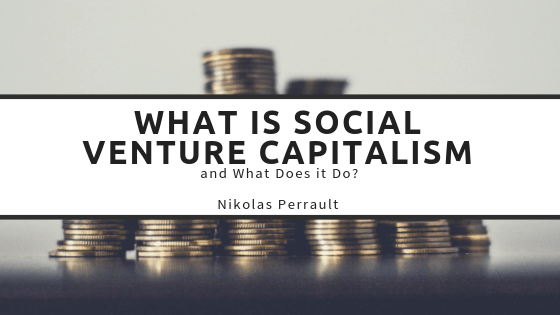Most people familiar with the finance world have heard of venture capital. Venture capital helps provide the necessary resources to startups to help them succeed (think Shark Tank). While money is an essential part of any business venture, many entrepreneurs and investors are beginning to widen their view to include another important component: social impact.
Social venture capital is a type of seed-funding investment that seeks to achieve financial gain while also making a positive impact on the world. Social venture capitalists invest their money in startups that are working towards creating a positive change in society, namely in poverty and the environment. Social venture capitalists are still concerned with making money back on their investment, but the more significant focus is on funding a positive impact.
There’s no strict definition of what a socially responsible company is. For some investors, it means not investing in industries that are seen as harmful, such as tobacco or gambling. Others specifically invest in companies aiming to improve some aspect of society.
Since 2015, social venture capital firms have been rapidly expanding, as people become more focused on making a difference in the world. Impact investments are currently responsible for $1.3 trillion in assets. Investing in social good companies doesn’t mean your financial returns will take a hit. In recent years, it’s been shown that social venture capital can produce better returns than traditional venture capital. In a 2015 report, Morgan Stanely found that “investing in sustainability has usually met, and often exceeded, the performance of comparable traditional investments.”
This doesn’t mean social venture capitalists are throwing their money at every startup that aims to do good. As with any investment, social venture capitalists will analyze the business plan and budget before investing to ensure businesses are financially viable and will make the promised social impact. Though a potential business may show potential, a social venture capitalist will pass on the investment if the company is not focused on changing the world.
Social venture capital comes from social venture capital firms, funds, and impact investors. In addition, some major venture capital firms have specific social venture capital funds in addition to traditional funds.
Millennials may be the face of social venture capital in the years to come. 90 percent of millennials have stated they would switch brands to one that was socially conscious, so it makes sense to assume they would invest their money in socially responsible ventures as well.

